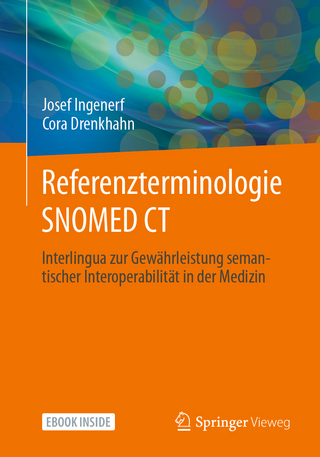
Mathematics for Future Computing and Communications
Cambridge University Press (Verlag)
978-1-316-51358-3 (ISBN)
For 80 years, mathematics has driven fundamental innovation in computing and communications. This timely book provides a panorama of some recent ideas in mathematics and how they will drive continued innovation in computing, communications and AI in the coming years. It provides a unique insight into how the new techniques that are being developed can be used to provide theoretical foundations for technological progress, just as mathematics was used in earlier times by Turing, von Neumann, Shannon and others. Edited by leading researchers in the field, chapters cover the application of new mathematics in computer architecture, software verification, quantum computing, compressed sensing, networking, Bayesian inference, machine learning, reinforcement learning and many other areas.
Liao Heng is Fellow of Huawei and Chief Scientist of Huawei's 2012 Laboratories and HiSilicon. He leads research and development teams working on computer architecture, processors and software platforms and he also leads the Huawei CSTT committee which is focused on fundamental theory exploration. He has more than 20 years of experience in semiconductor industry. His recent work includes storage controller architectures, SSD controllers, high performance server class CPUs, AI processors and computing theory research. Prior to joining Huawei, he was a Fellow at PMC-Sierra, Inc. He has authored over 30 patents. Bill McColl is the Director of the Future Computing Lab at Huawei's Zurich Research Center, where he leads research on architecture, software and algorithms. He is also a Fellow of Wadham College, Oxford University. Previously he was Professor of Computer Science, Head of Research in Parallel Computing and Chairman of the Faculty of Computer Science at Oxford. He established and led Oxford Parallel, a major center for research on industrial and business applications of HPC at the university. Much of his research has focused on the Bulk Synchronous Parallel (BSP) approach to parallel architecture, software and algorithms. BSP is now used throughout industry for massively parallel graph databases, graph analytics, machine learning and other areas of AI.
Preface Liao Heng; Part I. Computing: Introduction to Part I; 1. Mathematics, models and architectures Bill McColl; 2. Mathematics and software verification Chen Haibo and Gao Xin; 3. Mathematics for quantum computing Kong Yunchuan; 4. Mathematics for AI: categories, toposes, types Daniel Bennequin and Jean-Claude Belfiore; Part II. Communications: Introduction to Part II; 5. Mathematics and compressed sensing Zhang Rui and Long Zichao; 6. Mathematics, information theory, and statistical physics Mérouane Debbah; 7. Mathematics of data networking Li Zongpeng, Miao Lihua and Tang Siyu; 8. Mathematics and network science Sun Jie; Part III. Artificial Intelligence: Introduction to Part III; 9. Mathematics, information and learning Tong Wen and Ge Yiqun; 10. Mathematics and Bayesian inference Guo Kaiyang, Lv Wenlong and Zhang Jianfeng; 11. Mathematics, optimization and machine learning Jiu Shangling; 12. Mathematics of reinforcement learning Wu Shuang and Wang Jun; Part IV. Future: 13. Mathematics and prospects for future breakthroughs Dang Wenshuan; Editors and contributing authors.
| Erscheinungsdatum | 16.12.2021 |
|---|---|
| Zusatzinfo | Worked examples or Exercises |
| Verlagsort | Cambridge |
| Sprache | englisch |
| Maße | 176 x 257 mm |
| Gewicht | 900 g |
| Themenwelt | Informatik ► Theorie / Studium ► Algorithmen |
| Sozialwissenschaften ► Kommunikation / Medien ► Kommunikationswissenschaft | |
| ISBN-10 | 1-316-51358-0 / 1316513580 |
| ISBN-13 | 978-1-316-51358-3 / 9781316513583 |
| Zustand | Neuware |
| Haben Sie eine Frage zum Produkt? |
aus dem Bereich


